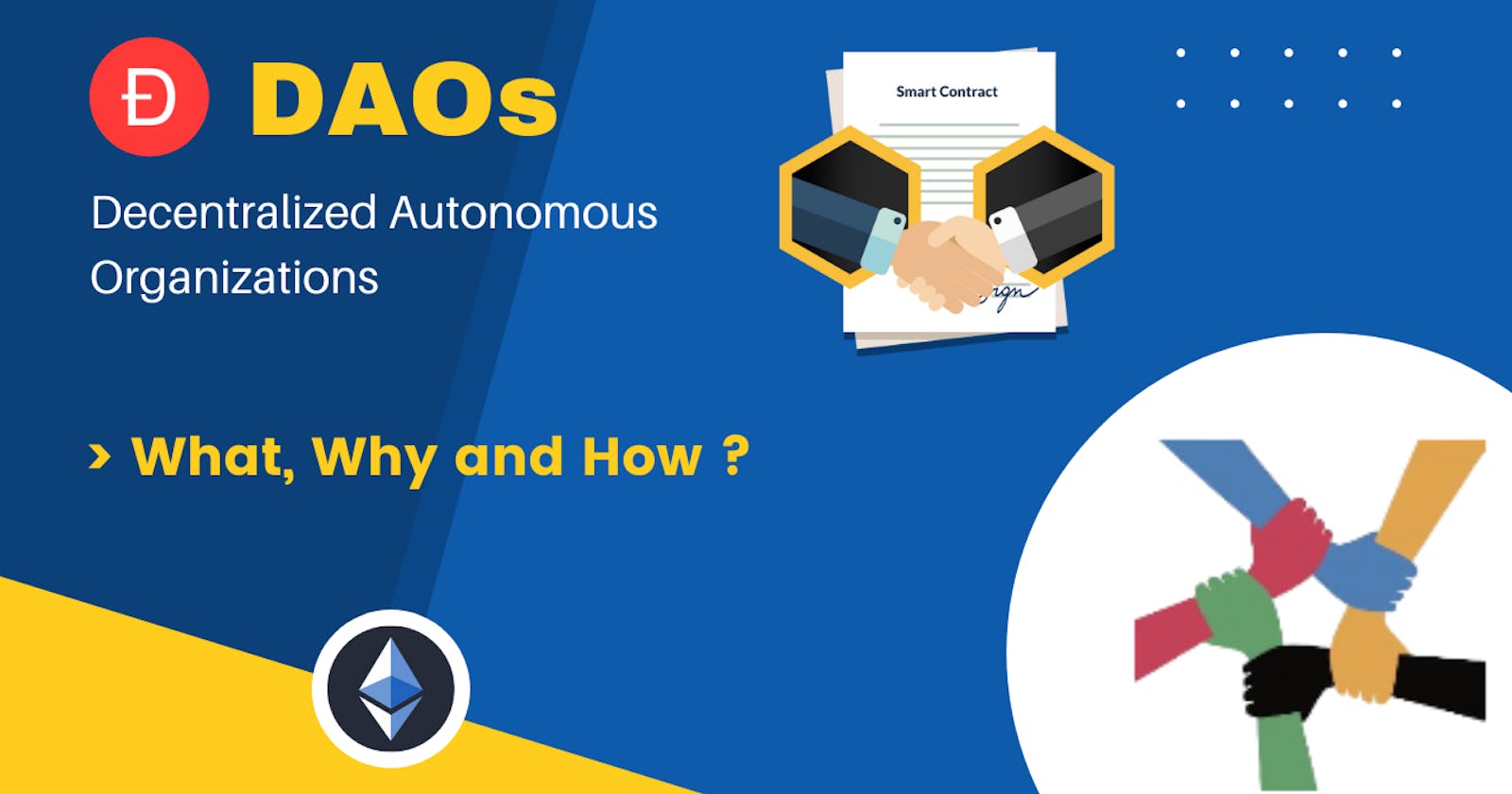👋 Hello world! This is Santhosh Reddy, a 17 year old developer and a curious web3 learner. I keep building projects on blockchain like Dapps and smart contracts which reflects the real world use cases. I also write articles on web3 that would help my co-learners...
Intro...🙋♂️
If your in the web3 space or even exploring it, you might have heard a buzz word DAO right? Today I would like to discuss the What, Why and How.
What is a DAO..? 🏛
A Decentralized Autonomous Organization (DAO) is simply an online community where there is no entry for central power. Meaning, the power to govern, manage the treasury is distributed among all the members of the community.
The backbone of a DAO is a smart contract in which all the rules of the community, responsibilities and rewards of the members are defined and then deployed to the respective blockchain network (Ethereum here).
In my past projects I had completed two solidity smartContract projects of DAOs. They are Smart City Government and Car Insurance Company. Referring to the smart contracts code in these projects can give you a practical understanding on how a DAO works.
How a DAO work..? ⚙
As said, a DAO's functionality is completely dependent on its smart contract. All the rules, responsibilities and rewards are defined in the smart contract and it also holds the DAO's treasury.
A DAO' treasury is a crucial one and should be managed in a secure way. No one can touch the treasury without any predefined rules or the approval of the community members through voting.
All the functions of the DAO are predefined in the contract and mostly every function checks if a member calling a function is eligible to call a function and the required conditions to be met before execution. If a member is neither eligible nor a set of conditions aren't met, the function gets reverted.
Now let's discuss a DAO's economy. Generally, a DAO's economy as well as governance is powered by the ERC20 tokens developed by the DAO's developer team.
The first utility of a DAO's tokens is economy. All the members of a DAO can make transactions through the tokens or these may also be the proof of something. For example, in MakerDAO a decentralized lending platform, the DAI tokens are the loan that you received for depositing ETH as collateral.
Another important utility of a token in DAO's is governance. Earlier we discussed that there are some predefined rules in the smart contract. But, what if there is something to change?
When a DAO member finds that there is something to be changed on the DAO's functionalities or rules he/she can make a proposal. This proposal will be approved only when the upvotes are greater than downvotes. So, all the members holding the tokens can vote the proposals and higher their holdings, greater their value for the vote.
For example, in MakerDAO MKR is another token that can allow a member to vote for a proposal. These proposals can affect how the DAI works and other functionalities of the DAO.
How to get started..? 💡
In the Web3 space DAOs are going to play a crucial role. As a developer if you want to go deep in it, you need to develop good hands of smart contract development. It may be with Solidity in Ethereum or with Rust in Solana.
Then start researching how other DAOs work. For example, research deeply on how MakerDAO works and try to clone any part of that DAO like, an erc20 token, making a proposal by the member, voting them based on the token holdings and approving them.
You can also watchout others' works like my recent DAO smart contract projects.
You can also spend some time on ideation and code a smart contract for the best DAO idea that you got.
Final Thoughts... 🙂
My final words here on DAOs are they are going to be massive in future and even in present as well.
I recommend you to go deep into it, study a lot and try building amazing projects. This could help you a lot as a developer.
Thanks for staying with me till here...
Taking a leave for now... 👋 Bye!
